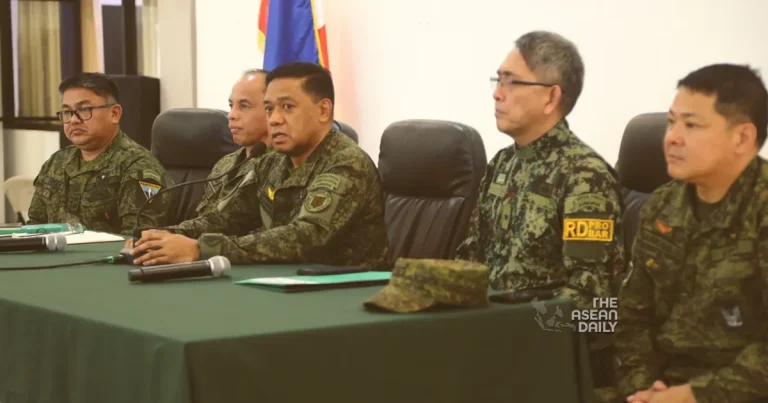5-12-2023 (MANILA) Philippine authorities have identified at least two suspects involved in Sunday morning’s Catholic Mass bombing in the southern Philippines. The terrorist group ISIS has claimed responsibility for the attack.
The explosion occurred at the Mindanao State University gymnasium in Marawi City, on Mindanao Island, resulting in four fatalities and 54 injuries. After convening a security meeting in Marawi on Monday (December 4), Western Mindanao Command Chief General Gonzarey stated that the police are conducting extensive search operations to apprehend the individuals linked to the terrorist organization and criminal activities. The suspects have been identified, but their names are being withheld pending further investigation, and one of them is reportedly associated with a local armed group.
Hours after the incident, ISIS claimed responsibility for the attack. The United States condemned the “horrific terrorist attack,” and the U.S. State Department issued a statement expressing solidarity with the Philippines against violence. Other nations, including Japan, Australia, the United Kingdom, China, and Canada, also expressed support for the Philippines.
Marawi, an economically disadvantaged city in the autonomous region of the Muslim-majority Bangsamoro on Mindanao Island, has been plagued by crime, separatist violence, and gang conflicts for decades, providing fertile ground for the spread of extremism. In May 2017, militants affiliated with ISIS, including the Maute and Abu Sayyaf groups, seized control of Marawi. After a five-month-long military operation, government forces regained control of the city. The Chief of Staff of the Armed Forces of the Philippines, General Brual, suggested that the bombing might be a retaliatory attack related to recent military actions against extremist groups on Mindanao Island.
He stated, “The security forces are working tirelessly to ensure that those responsible for this terrorist act face justice.”
Recently, the Philippine military announced the killing of a senior operative of Abu Sayyaf, affiliated with ISIS. Two operations were carried out on Friday (December 1) and Sunday (December 3) on Mindanao Island against the Maute group, resulting in the deaths of three leaders.
Abu Sayyaf was established in the early 1990s and is based in the provinces of Sulu and Basilan, advocating for autonomy in the southern Philippines. After the formation of ISIS in 1999, Abu Sayyaf pledged allegiance to the terrorist organization. The Maute group, composed of former members of the Moro Islamic Liberation Front (MILF) who disbanded in 2014, also pledged allegiance to ISIS.
The Manila Times reported that military spokesperson Trinidad said investigators found fragments of a 40mm mortar shell at the blast site, and authorities are examining the pieces to aid in identifying the perpetrators. The military is also investigating whether members of ISIS were involved and if the Maute group played a role. Trinidad revealed that seven of the 54 injured individuals remain hospitalized.
Schools in Marawi resumed classes on Monday with enhanced security measures, and police stations in Mindanao and the capital region were placed on high alert, with intensified security checkpoints.
According to The Philippine Star, leaders from the Muslim and Catholic communities in the Philippines jointly condemned Sunday’s terrorist attack. The Philippine Ulama Supreme Council issued a statement denouncing the bombing as a violation of Islamic principles, stating that violence against innocent civilians is unjustifiable and goes against Islamic teachings. The Catholic Bishops’ Conference of the Philippines also released a statement expressing sorrow over the attack on the faithful.
The Asia Climate and Conflict Action Network, monitoring the situation in Mindanao, noted a surge in retaliatory slogans and hate speech on social media following the attack. The network urged the public to remain vigilant and refrain from making premature conclusions about the identity of the attackers, as some seek to sow seeds of conflict between Muslims and Christians.




